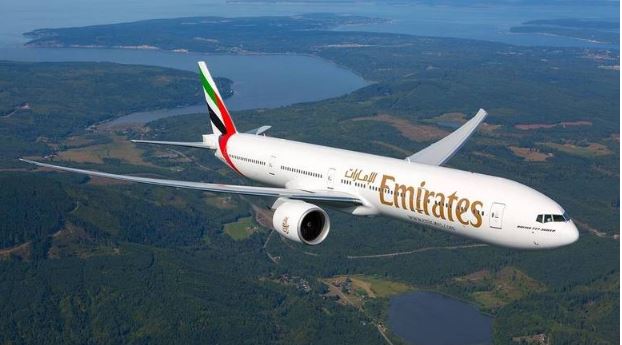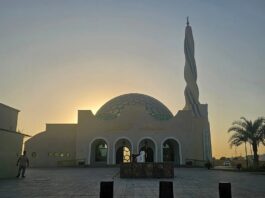The Group’s revenue was Dh35.6 billion ($9.7 billion), a decline of 66 per cent over last year’s results.
Emirates airline on Tuesday reported a loss of Dh20.3 billion after last year’s Dh1.1 billion profit, and a negative profit margin of 65.6 per cent, due to the impact of Covid-19 pandemic.
This includes a one-time impairment charge of Dh710 million, mainly relating to certain aircraft which are currently grounded and are not expected to return to service before their scheduled retirement within the next financial year.
The Emirates Group, meanwhile, reported a loss of Dh22.1 billion ($6 billion) for the financial year that ended March 31, 2021 compared with Dh1.7 billion ($456 million) profit for last year.
The Group’s revenue was Dh35.6 billion ($9.7 billion), a decline of 66 per cent over last year’s results.
Its cash balance was Dh19.8 billion, down 23 per cent from last year — mainly due to weak demand caused by various pandemic-related business and travel restrictions across all of the Group’s core business divisions and markets.
“The Covid-19 pandemic continues to take a tremendous toll on human lives, communities, economies, and on the aviation and travel industry. In 2020-21, Emirates and dnata were hit hard by the drop in demand for international air travel, as countries closed their borders and imposed stringent travel restrictions,” said Sheikh Ahmed bin Saeed Al Maktoum, Chairman and Chief Executive, Emirates Airline and Group.
“Our top priorities throughout the year were: the health and wellbeing of our people and customers, preserving cash and controlling costs, and restoring our operations safely and sustainably,” he said.
Emirates last year received a capital injection of Dh11.3 billion from the Government of Dubai.
In addition, dnata tapped various industry support programmes and availed a total relief of nearly Dh800 million in 2020-21.
“These helped us sustain operations and retain the vast majority of our talent pool. Unfortunately, we still had to make the difficult decision to resize our workforce in line with reduced operational requirements.”
Due to redundancies, the Group’s total workforce reduced by 31 per cent to 75,145 employees.
The various cost reduction initiatives returned an estimated saving of Dh7.7 billion during the year.
In 2020-21, the Group collectively invested Dh4.7 billion in new aircraft and facilities, the acquisition of companies, and the latest technologies to position the business for recovery and future growth.
It also continued to invest resources towards environmental initiatives, as well as supporting communities and incubator programmes that nurture talent and innovation to drive future industry growth.
Sheikh Ahmed said: “No one knows when the pandemic will be over, but we know recovery will be patchy. Economies and companies that entered pandemic times in a strong position, will be better placed to bounce back. Until 2020-21, Emirates and dnata have had a track record of growth and profitability, based on solid business models, steady investments in capability and infrastructure, a strong drive for innovation, and a deep talent pool led by a stable leadership team. These fundamental ingredients of our success remain unchanged.”
He said together with Dubai’s undiminished ambitions to grow economic activity and build a city for the future, Emirates and dnata will recover and be stronger than before.
Emirates airline
Emirates carried 6.6 million passengers (down 88 per cent) in 2020-21, with seat capacity down by 83 per cent.
The airline’s total passenger and cargo capacity declined by 58 per cent to 24.8 billion ATKMs at the end of 2020-21, due to pandemic-related flight and travel restrictions, including a complete suspension of commercial passenger services for nearly eight weeks from March 25, 2020, as directed by the UAE government.
Emirates received three new A380 aircraft during the financial year and phased out 14 older aircraft comprising of 9 Boeing 777-300ERs and 5 A380s, leaving its total fleet count at 259 at the end of March. Its average fleet age remains at a youthful 7.3 years.
Emirates’ order for 200 aircraft remains unchanged at this time. As of March 31, 2021, it was serving over 120 destinations.
The airline’s total revenue for the financial year declined 66 per cent to Dh30.9 billion (US$ 8.4 billion). Currency fluctuations this year had no significant impact on airline revenue.
Total operating costs decreased by 46 per cent from last financial year. The airline’s fuel bill also declined by 76 per cent to Dh6.4 billion compared to the previous year, driven primarily by 69 per cent lower uplift in line with capacity reduction.
Others subsidiaries
With the strong demand in air freight throughout the year, Emirates’ cargo division reported a revenue of Dh17.1 billion, an increase of 53 per cent over last year.
Emirates’ hotels portfolio recorded revenue of Dh296 million (US$ 81 million), a decline of 49 per cent over last year as the events business dried up and facilities had to shut temporarily due to the pandemic.
In addition to the Dh14.5 billion financing that was raised for aircraft and general corporate purposes in 2020-21, Emirates has already received committed offers to finance two aircraft deliveries due in 2021-22 and continues to tap the financial market for further liquidity to provide a cushion for the potential impact of Covid-19 on the business cash flows in the near term.
It closed the financial year with cash assets of Dh15.1 billion (US$ 4.1 billion), a position which would have been stronger, if not for a one-time payout of Dh8.5 billion for customer refunds.
Dnata recorded a loss of Dh1.8 billion (US$ 496 million) for the first time. This includes impairment charges of Dh766 million on goodwill and other intangible assets across all its divisions.
With reduced flight and travel activity across the world, dnata’s total revenue decreased by 62 per cent to Dh5.5 billion (US$ 1.5 billion). Its international business accounts for 62 per cent of its revenue.
In 2020-21, dnata’s operating costs decreased by 48 per cent to Dh7.4 billion (US$ 2.0 billion), in line with reduced operations in its Airport Operations, Catering and Travel divisions across the world.



